A medical alert system is an in-home or mobile device most often used by the elderly to ensure they do not go unattended in the event of an emergency.
Medical alert systems have undergone near continual refinement during their 30+ year history. Today, they are high-tech devices that can read vital signs, detect falls, and call for help without any physical input from the user.
Our experts have compiled the following list of the best medical alert systems of 2023.
Rankings
1. Medical Guardian Freedom
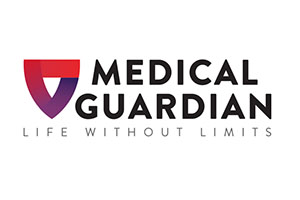
Click here for more information
Lots of seniors understand the need for a mobile medical alert device but don’t want to advertise that they’re wearing one. The Freedom smartwatch enables older folks to obtain the protection they need in a discreet, even fashionable way.
What we like: We like the discrete nature of the device and the fact that it’s light and comfortable. We like the flawless GPS tracking, fast responses, and the fact that others can send helpful reminder messages.
Flaws: The monthly fees are on the high end of the market. And there’s no fall detection.
2. Medical Alert
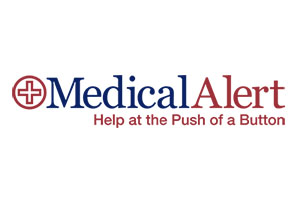
Click here for more information
It’s easy to get intimidated by some of the complex, feature-heavy medical alert plans out there. For those who like to keep things simple, there’s Medical Alert with their ‘Home Landline’, ‘Home No Landline’, and ‘On the Go’ plans. Each is straightforward as can be and very affordable.
What we like: We like that they refine the service to 3 plans. We like the reasonable cost and that they offer a yearly discount. And the response times from the monitoring center are dependably quick.
Flaws: There isn’t much in the way of bells and whistles. And their mobile service costs considerably more than their home service.
3. Philips Lifeline GoSafe 2
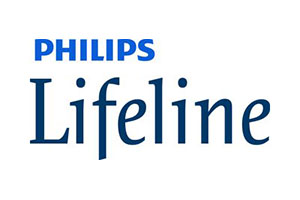
Click here for more information
Sometimes the GPS technology that makes medical alert devices possible can be a little hit-or-miss. That’s not the case with Philips Lifeline GoSafe 2. The company uses multiple technologies to pinpoint your exact location at all times.
What we like: This is one of the few mobile devices that come with fall protection built-in. We also like that they employ a multitude of location systems. The audio quality on the device is also first-rate.
Flaws: While it’s nice to have that built-in fall protection, you’re going to pay for its inclusion. Also, if family members wish to keep tabs on where mom or dad are, they won’t be able.
4. LifeFone
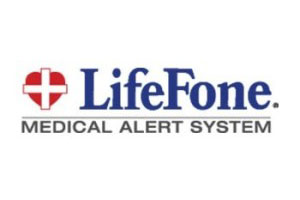
Click here for more information
The LifeFone offers a multitude of options that include medication reminder beeps, daily check-in calls, the ability to allow loved ones to monitor your location, and much more. But even if you’re not of a mind to load up on options, the basic service is still dependable and easy to use.
What we like: We like the medication reminder and the daily check-in call. We appreciate the range of the mobile device, and that the response center is reliably fast. Oh yeah, and the free spousal coverage is another plus.
Flaws: The devices are technically sound and dependable, but the service is relatively expensive.
5.GreatCall
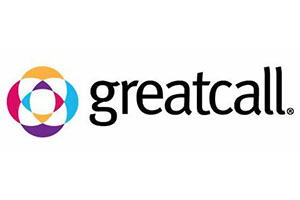
Click here for more information
If you are at all familiar with the Jitterbug smartphone for seniors, then you have at least a passing familiarity with GreatCall medical alert system. Plenty of seniors like the technological convergence, as it enables both standard and emergency communications in one device.
What we like: We appreciate the reasonable pricing, the dependably quick response, and the dual nature of their cell phones. And we like the simplicity of the 5Star help button.
Flaws: Those looking for a tabletop device are going to be disappointed. And there is no fall detection.
6. LifeStation At Home
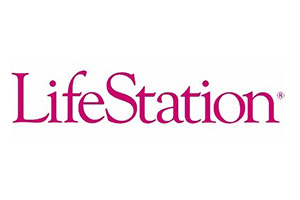
Click here for more information
LifeStation is another fairly simple and straightforward service. It doesn’t offer a lot of bells and whistles, but what it does it does exceptionally well. Response times are among the best you’ll find, and the no-nonsense setup is going to appeal to a lot of seniors who don’t appreciate wrestling with high tech devices.
What we like: We appreciate the plug and play nature of this device. We appreciate that the response center calls others if it can’t communicate directly with you. And the quality of the audio on the two-way radio is routinely excellent.
Flaws: Their mobile pendant has surprisingly limited range. And the help button is smaller than we’d like it to be.
7. MobileHelp Classic
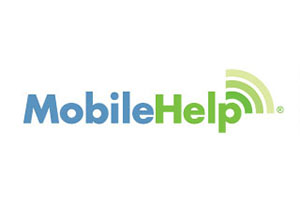
Click here for more information
Sometimes a person needs a powerful in-home medical alert system. Sometimes what they need is a first-rate mobile device. And sometimes they need both. If that sounds like you, then you should check out the MobileHelp Classic. This system gives you the option of home, away, or home and away packages.
What we like: We appreciate that they offer a combo in-home and mobile systems. We like that the help button on the desktop device is make-no-mistake large. The LCD screen is also easy to read.
Flaws: It’s not cheap. Although you do get a 30 day no-obligation trial period.
8. ResponseNow
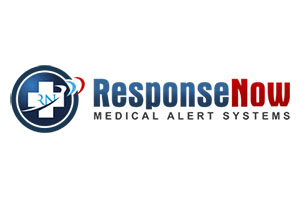
Click here for more information
The ResponseNow Belle+ mobile, one-touch medical alert pendant goes wherever you go and offers dependable coverage no matter where you roam. Belle+ can also be used in the home and is entirely waterproof.
What we like: We like that it’s waterproof and can be worn in the shower, where so many accidents happen. We appreciate that it offers fall detection. And that the fall detection software is some of the best available.
Flaws: Response times, while good, are not always as fast as some other services. And if you decide to opt-out, you may incur early termination charges.
9. Get Safe Medical Alert
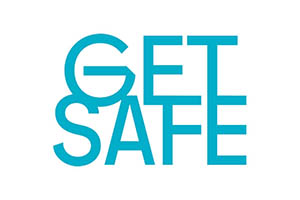
Click here for more information
Seniors who travel sometimes discover that their medical alert system doesn’t travel with them. But that’s not the case with Get Safe Medical Alert. The company has a comprehensive nationwide network that is never more than one touch of the help button away. And fall protection is also available.
What we like: The fact that they have a nationwide monitoring network is great for active seniors. The mobile device is small enough to slip in your shirt pocket. And we appreciate that they offer fall protection, albeit at an additional cost.
Flaws: As it’s strictly voice-activated, people with speech impairments won’t be able to use it effectively.
10. Bay Alarm Medical
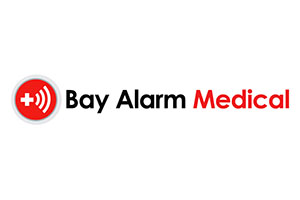
Click here for more information
The last of our best medical alert systems is this affordable, powerful system from Bay Alarm Medical. This is undoubtedly one of the best values out there, with the basic monthly home system checking in at less than 20 bucks. They also offer a mobile option that won’t drain your bank account.
What we like: We like the low monthly price and the versatility of the system. The fact that response times are dependably first-rate makes it an even better value. The mobile device uses GPS to direct emergency responders, and it’s also fairly discreet.
Flaws: The performance of the GPS system can sometimes be a bit iffy. And when you start adding optional features, the price goes up quickly.
Who Needs Medical Alert Systems?
There are more seniors than ever these days who are taking care of themselves. But the fact remains that once you pass a certain age, the old adage “better safe than sorry” takes on added significance. That age is about 65. After which time, it makes sense to have an extra layer of protection on hand just in case. And this is true even if you lift weights, take the stairs and don’t drink or smoke.
For seniors who, for one reason or another, are not in the best of shape, the need for a medical alert system is even more pressing. Falls are a major health concern for seniors (1) and studies show that about 50% of falls are 2nd or 3rd falls (2). If those who fall are not attended to quickly, the fall could wind up being the downward turning point in their life. So having a medical alert system that can detect falls (as many do) is vitally important.
Those with chronic health conditions like diabetes, high blood pressure, or rheumatoid arthritis should also have a medical alert system on hand. Not having one could literally make the difference between life and death in many cases. And finally, elderly people who live alone should have one of these systems on hand regardless of their current physical condition.
How We Ranked
To compile our list, we reached out to health professionals and asked what they would look for in a medical alert device. Their input then informed the choices we made for our list.
One of the things they emphasized was that, if the person in question is active, the service should have a large coverage area. Many seniors enjoy getting out of the house. But just because they’re up and around doesn’t mean they’re immune to potential problems. They must be able to summon help quickly regardless of where they are. Of course, for those who spend most of their time at home, this is not such a pressing issue.
Another important consideration is whether the company offering the service focuses on medical alert systems or if it’s just one of numerous products they offer. It’s always preferable if the company is committed to their medical alert system and leaves things like home security to others. It’s also important that the system utilizes the latest technology. And not simply recycle technology from 10 years ago.
In addition, the company must have transparent pricing plans. Making technology purchases can be confusing enough without having to sift through the fine print to find out what you’ll actually be paying. If a company is cagey about their pricing, they didn’t make our list. Likewise, if the online purchasing mechanism provided confusing or contradictory information about pricing, that system did not make our list.
And finally, a medical alert system isn’t much good if the battery life is short. With recent advances in battery technology there’s no reason the battery shouldn’t last at least 24 hours. Rechargeable lithium-ion batteries are also a smarter choice these days than disposable batteries.
FAQs
Q: What is a medical alert system?
A: A medical alert system is an electronic device that enables users to notify the appropriate response personnel in the event of a health emergency. Sometimes called ’emergency response systems’, they are responsible for saving an untold number of lives every year. And with their continual refinement and ever-increasing market penetration, they are quickly becoming must-have items for the contemporary home.
Q: Who should have a medical alert system?
A: While seniors are an obvious choice for medical alert systems others can benefit from them as well. They are a good idea for homes where there may be a diabetic, where someone suffers from mobility issues (3), or where someone is recovering from an accident or surgery. Anything that can be done to reduce emergency response times for these people should be done. That includes having a medical alert system on hand.
Q: What specific features should I look for?
A: If you are in apparently robust health, you may just want to have a system like this on hand as a precaution. Or, if your need is more acute, you may want a device more tailored to your specific needs. If you have difficulty speaking, you will want to avoid a voice-activated system. If you live alone, you may want a system that will provide daily check-ins from the medical alert response team. That will not only help ensure that you are okay, but it will help alleviate feelings of isolation.
Q: How does fall protection work?
A: Some medical alert systems automatically alert emergency responders if they detect a person has fallen. No calls are necessary, and the injured person does not need to physically activate anything to get help. Responding quickly and effectively to falls is particularly important. Most fall detection devices link a gyroscope to a bit of software. When the gyroscope detects movement, it sends the info to the software for processing. If the software determines the movement is severe enough to suggest a fall, it sends a signal to the device, which automatically alerts emergency services.
Q: Will Medicaid pay for a medical alert system?
A: In most cases, Medicare will not cover the cost of a medical alert system. This is believed to be, at least in part, a legacy oversight. Given that the technology is still relatively new, Medicare simply hasn’t caught up with the times. That said, it may be possible to be reimbursed for a medical alert system if you have a Medicare Advantage (4) policy. Medicare Advantage plans are issued by private insurers and cover everything original Medicare covers. But they also have the ability to offer extras you can’t get through original Medicare. And in some cases, that means they’ll cover a medical alert system.
Q: Can I deduct a medical alert system from my taxes?
A: There is nothing in the tax code that specifically mentions medical alert systems. That said, there is nothing that specifically rules out deducting the cost from your taxes either. The general rule when it comes to deducting medical expenses is that, if a doctor prescribes the device, medicine, or therapy, you can deduct it. Therefore, if you can get your doctor to sign on to the idea that you need to have one of these devices, then you may find Uncle Sam agreeable with letting you deduct it.
Q: Does fall detection actually work?
A: No fall system is 100% accurate all of the time. And their performance is considered uneven in most cases. But the possibility of an occasional false alarm should not discourage you from getting a medical alert system with a fall detector. They are particularly important for older women who are more likely than men to suffer osteoporosis (5) and endure broken bones as a result.
Q: Do medical alert systems use GPS?
A: Yes. Most of today’s best medical alert systems use GPS (6). This is particularly important for mobile devices that you wear around your neck or wrist. Without GPS, a stricken individual would need to tell the emergency responder exactly where they are. And this may not be possible if, for instance, a person has suffered a heart attack or they have had a stroke and are unable to speak. In any event, GPS can tell the responders precisely where the individual is, and this could be the difference between life and death.
Q: Who responds to the medical alert system call?
A: The answer depends in part on your type of emergency. If the situation can be resolved without the intervention of EMTs, the response team may alert a nearby loved one or designated neighbor. These are the people on the contact list you submitted to the company at the time you purchased and setup your account. If the need is more serious, the police, fire department, or ambulance service will be dispatched, depending on your exact needs.
Q: Does Medicare pay for the ambulance if one is called?
A: In most cases, yes, Medicare will cover the cost of the ambulance as long as you are over 65 and enrolled in Medicare Parts A and B (7). There are caveats, however. Medicare will only pay for the ambulance to take you to the nearest medical center capable of handling your emergency. If you instruct the ambulance to take you somewhere else that is further away, you will be responsible for any additional charges.
Q: What happens if someone hits the button by mistake?
A: Mistakes happen. The companies that run these systems are well aware of that. If you or someone else hits the call button by mistake just tell the person from the monitoring center that’s what it was; a mistake. This type of thing happens all the time. Curious grandkids, and even dogs and cats, are frequent offenders. So there is no need to worry. And you will not incur any charges due to a mistaken call.
Q: Do medical alert systems work even if the power goes out?
A: Medical alert systems that draw power from the house are equipped with back batteries in case of a blackout. In most cases, the batteries will provide at least 3 or 4 days of power. Once the power comes back on the system automatically switches back to the home power source, and the battery begins to recharge. In the event of extended blackouts, the response center will typically notify police or other authorities of your situation before your batteries are fully drained.
Q: What exactly is a ‘lockbox’?
A: If the person has a medical emergency and is incapacitated, and the medical alert system works as intended, who is going to let the EMTs in when they arrive? The answer is ‘they are’, as long as you install a lockbox on the outside of the house. Real estate agents have long used lockboxes as a way to gain access to a home to show potential buyers when the seller is away (8). They are a small safe tucked away discreetly outside that holds a key to the house. These days they are being used more and more as a complement to a medical alert device.
Q: Should you use an in-home or mobile system?
A: There are many different medical alert systems on the market, but they can all be divided into either in-home or mobile devices. In-home systems are best for those who typically spend the vast majority of their time at home and rarely venture out without accompaniment. Mobile medical alert systems are best for active adults who go out regularly both by themselves and in the company of others. Even an older person who seems in relatively good health should have a mobile medical alert device with them whenever they go out, just in case.
Related Articles
Recap
Medical alert systems have come a long way since the days of “I’ve fallen and I can’t get up”. Today, they are high-tech digital devices driven by software and fully capable of alerting emergency responders without any input from the user. At the same time, the medical alert system has been unchained from the home.
The wisdom of older individuals having a medical alert system is beyond dispute. But the bottom line is that they can be an invaluable addition to any home where someone has an acute health condition.
For cpoe.org’s #1 recommended medical alert system, click here.

